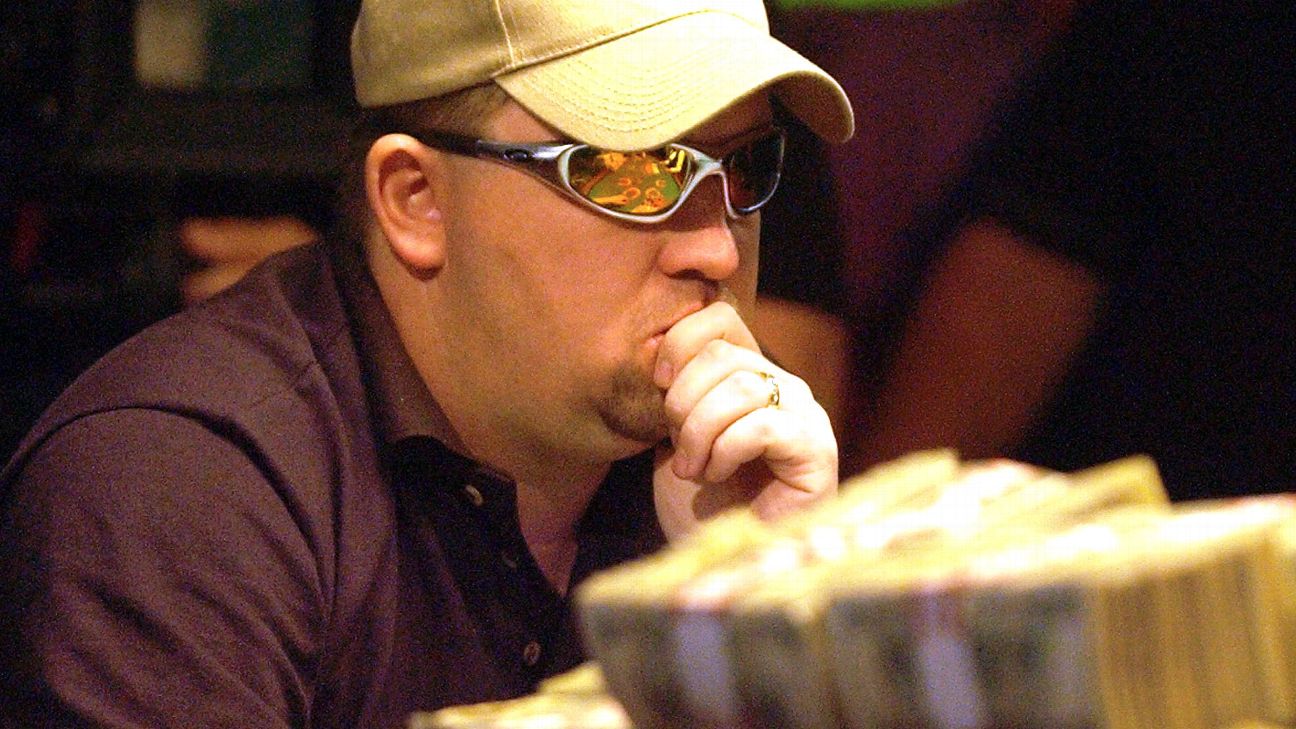
Poker was a serious affair before Chris Moneymaker busted on the scene - smoky back rooms, old school pros with faces like stone, the kind of tension you could cut with a butter knife. But then, this regular dude from Tennessee changes the whole damn game.
He was your average joe - an accountant, for crying out loud! The guy enjoyed playing cards with his buddies in casual home games across Tennessee, but he was far from a season pro rolling with the Vegas high rollers. In fact, he’d never even played a live tournament before. But hey, the name Moneymaker is kinda prophetic, right?
Then, in 2003, Moneymaker did the unthinkable. He wins an $86 online satellite tournament (that is poker speak for a smaller qualifying event) on this new website called PokerStars and snags a $10,000 seat at the World Series of Poker Main Event. Talk about a long shot!
2003 wasn’t exactly a golden age for poker. Things were getting a bit stale, and while televised poker gained some viewers with shows like Late Night Poker and the World Poker Tour, it hadn’t yet captured a truly mainstream audience. But then the moneymaker comes along, and - BOOM! - the whole world of poker explodes.
You see, back then, the pros didn't take online players seriously. But this perception quickly changed. Moneymaker’s fearless style, backed by a solid poker sense developed from online play, caught the old guard off balance.
Then ESPN starts broadcasting the WSOP with those cool hole-card cameras, and suddenly, everyone wants in on the action. The combination of an exciting underdog story and viewers seeing the hidden cards revolutionized televised poker. The game was no longer mysterious - strategy and psychology were laid bare, fueling the poker boom.
Moneymaker’s rise was nothing short of insane. The 2003 WSOP Main Event had a record breaking 839 entrants, a massive increase from the previous year and the final table was packed with poker legends - Harrington, Lester and Grey. Moneymaker told an interviewer, “My goal was to win that eight grand. And a buddy talked me into taking the seat, and that’s how I got the World Series seat. And the rest is history.”
Moneymaker wasn’t just some guy on a hot streak; he took down giants of the game like Johnny Chan and Phil Ivey. His final heads-up battle with season pro Sam Farha was poker drama at its finest.
Farha’s probably thinking, “Who the hell is this accountant?” They try to make a deal, but Moneymaker ain’t having it. He smells blood in the water, says let’s play, and history starts to unfold. After a tense, all-night showdown, Moneymaker takes the whole thing down with a now iconic bluff, a gutsy call, and $2.5 million in cold hard cash.
Suddenly, everyone and their grandma think they could be the next poker superstar. Online poker rooms explode, and live tournaments are packed to the gills. The WSOP Main Event attendance skyrocketed over the next few years, peaking at over 8000 players in 2006. Moneymaker becomes the fact of the game, traveling the world and inspiring a whole new generation of players.
According to the Slate, online poker generated a revenue of over $2billion from 2000 to 2005 due to this Moneymaker Effect.
He even gets inducted into the Poker Hall of Fame in 2019. People called it the “Moneymaker Effect” and for good reason.
Haters gonna hate, right? Some folks say Moneymaker just got lucky, and anyone could have won if they had caught the right cards. And sure, luck’s ALWAYS a factor in poker. But you gotta put yourself in a position to get lucky, and with the moves Moneymaker pulled, you gotta have serious guts, too. Plus, he navigated a larger field of players than any Main Event winner before him - that requires skill as well as luck.
Moneymaker once said, “You can’t win a poker tournament without getting lucky. That’s just part of the game. But you have to put yourself in a position to be lucky though, too. That’s what makes the game so good. If the best player won every single time, no one would play.”
Poker has evolved a lot since 2003. Online games are bigger than ever and those live tournaments? They are massive spectacles, with millions in prize pools. Moneymaker’s win showed everyone that taking risks and playing a bit looser could seriously pay off. But the boom also led to a huge rise in player skill - now everyone is studying strategy, using advanced software and the competition is fierce.
Okay, let’s get real. What did this accountant actually do with $ 2.5 million?! It turns out that Moneymaker didn’t blow it all on mansions and sports cars. He made sensible investments but used his winnings to pursue his lifelong love of golf. The sudden fame wasn’t easy - folks wanted a piece of his winnings, and it even caused the end of his first marriage.
But Moneymaker found his groove. He became a PokerStars ambassador, played tournaments around the world, and even tried his hand at broadcasting. Despite his not always being on top, he found his place in the poker world.
When Black Friday in 2011 (the day online poker was shut in down in the US), things got uncertain for a while. But Moneymaker’s name still held weight and he continued to be an ambassador for the game. He signed with poker sites, started his own poker tour and keeps playing the game he loves.
And the best part? He is still out there, doing what he loves. Despite some bumps in the road, Moneymaker’s still playing, promoting poker, and inspiring everyday folks to try their luck.